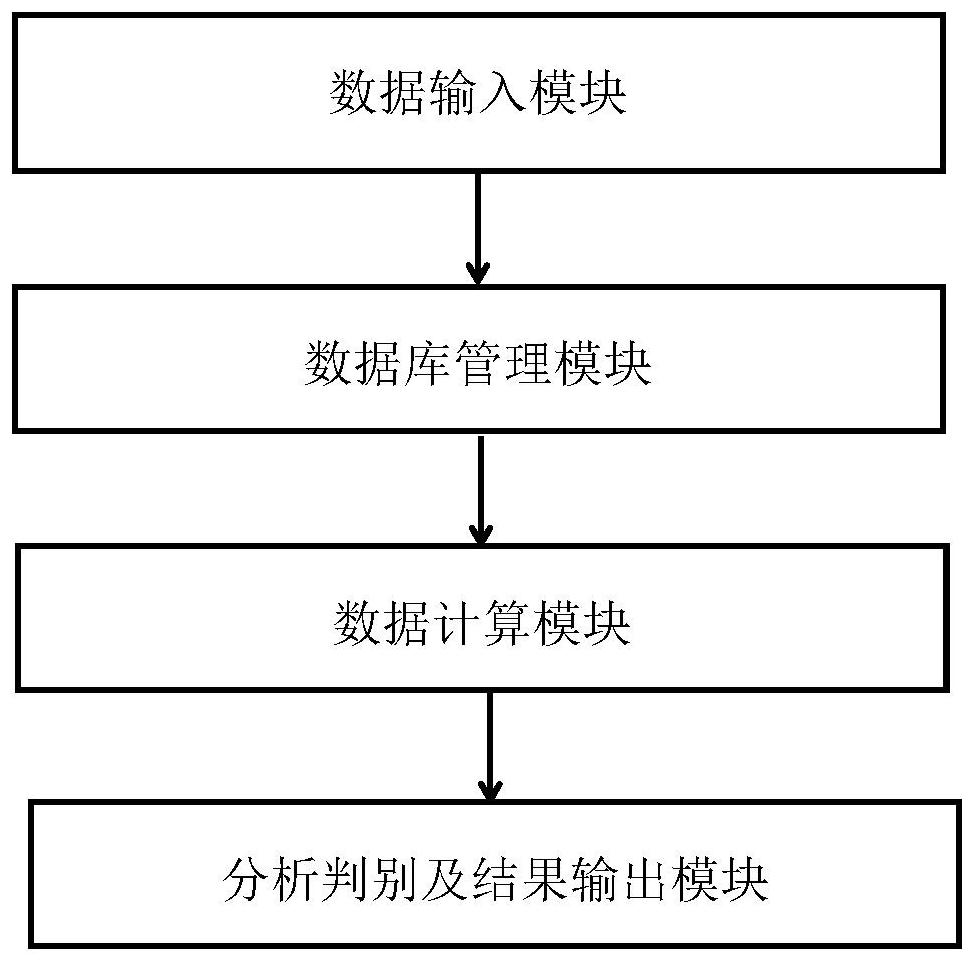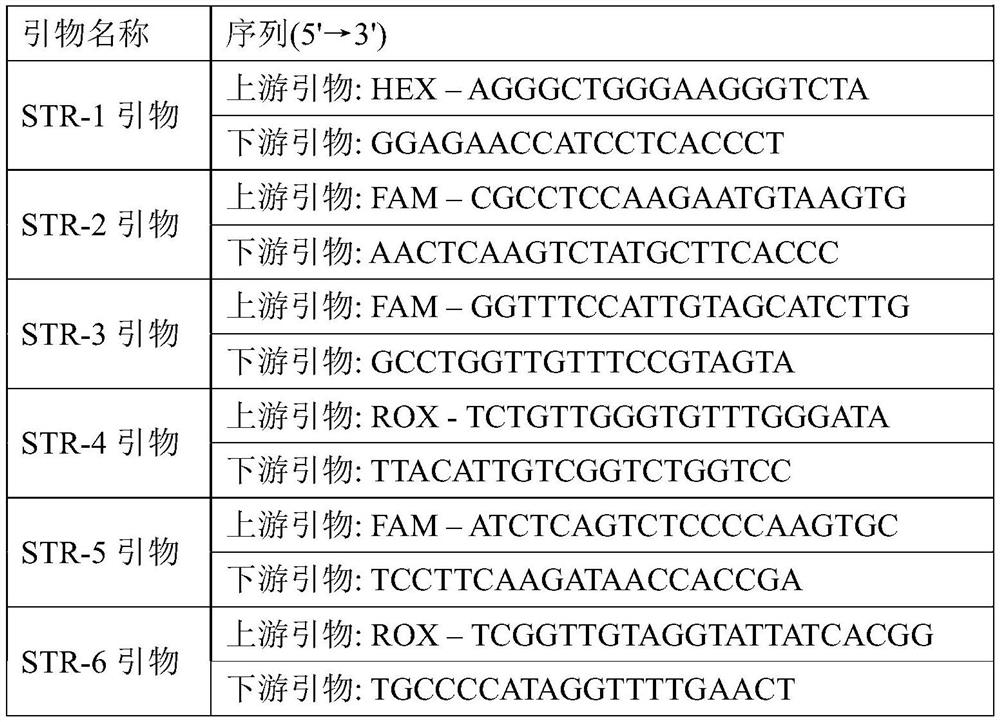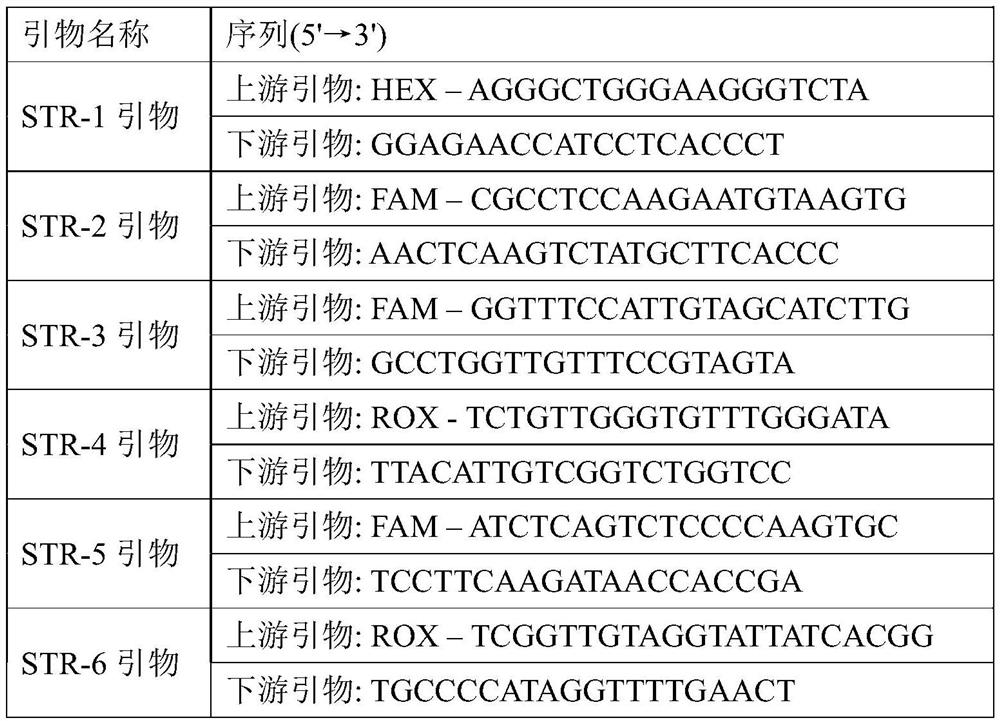A colon adenocarcinoma susceptibility prediction kit and system
A colon adenocarcinoma, susceptibility technology, applied in the field of biomedicine, can solve the problems of inability to early warning of tumor susceptibility, impossible, unscientific, etc.
- Summary
- Abstract
- Description
- Claims
- Application Information
AI Technical Summary
Problems solved by technology
Method used
Image
Examples
Embodiment 1
[0110] Example 1 A Colon Adenocarcinoma Susceptibility Prediction System
[0111] A colon adenocarcinoma susceptibility prediction system comprising:
[0112] A device for obtaining the number of repetitions of the STR site short tandem sequence of the sample DNA;
[0113] Data processing and judging device, it comprises following module (as figure 1 ):
[0114] The data input module is used to input the age, gender, and repeat times of the short tandem sequence of the subject;
[0115] The database management module is used for the operation management of data storage, modification, deletion, query and printing;
[0116] The data calculation module is used to calculate the result of the discriminant function according to the number of repetitions of the STR site short tandem sequence in the data input module;
[0117] The analysis, discrimination and result output module is used to compare the results of the discriminant function, so as to predict the susceptibility of c...
Embodiment 2
[0152] Example 2 A colon adenocarcinoma susceptibility prediction kit
[0153] A colon adenocarcinoma susceptibility prediction kit comprising the following components: STR-1 primers, STR-2 primers, STR-3 primers, STR-4 primers, STR-5 primers, STR-6 primers, PCR amplification Reaction solution, LIZ-500 molecular weight internal standard, deionized formamide, instruction manual.
[0154] The concentrations of the above STR-1 primers, STR-2 primers, STR-3 primers, STR-4 primers, STR-5 primers, and STR-6 primers are all 10 μM, and the primer sequences are shown in the following table:
[0155]
[0156]
[0157] The PCR amplification reaction solution is a mixture of the following reagents: TaqDNA polymerase (5U / μL), Tris-HCl (100mM, pH 8.8 at 25°C), KCl (500mM), ethylphenyl polyethylene glycol (0.8 %(v / v)), MgCl 2 (25mM), dNTP (10mM), deionized water.
[0158] The PCR amplification reaction solution is stored at -20°C; the LIZ-500 molecular weight internal standard is st...
Embodiment 3
[0160] Example 3 Using the system of Example 1 and the kit of Example 2 to predict the risk of the subject suffering from colon adenocarcinoma
[0161] Subject: Male, 74 years old, was treated at the Department of Colorectal and Anal Surgery of the Second Hospital of Jilin University. After being fully informed of the purpose and purpose of the examination and voluntary, he signed an informed consent and collected 1 mL of anticoagulant blood via a peripheral vein. .
[0162] Use the kit of embodiment 2, carry out the following steps according to the method recorded on the kit instruction manual:
[0163] (1) Extract sample DNA: Use a DNA extraction kit to extract blood genomic DNA;
[0164] (2) PCR reaction
[0165] (2-1) Take out STR-1 primer, STR-2 primer, STR-3 primer, STR-4 primer, STR-5 primer, STR-6 primer, PCR amplification reaction solution from the refrigerator, equilibrate to room temperature, each After the components are fully dissolved, quickly centrifuge for 1...
PUM
 Login to View More
Login to View More Abstract
Description
Claims
Application Information
 Login to View More
Login to View More - Generate Ideas
- Intellectual Property
- Life Sciences
- Materials
- Tech Scout
- Unparalleled Data Quality
- Higher Quality Content
- 60% Fewer Hallucinations
Browse by: Latest US Patents, China's latest patents, Technical Efficacy Thesaurus, Application Domain, Technology Topic, Popular Technical Reports.
© 2025 PatSnap. All rights reserved.Legal|Privacy policy|Modern Slavery Act Transparency Statement|Sitemap|About US| Contact US: help@patsnap.com



